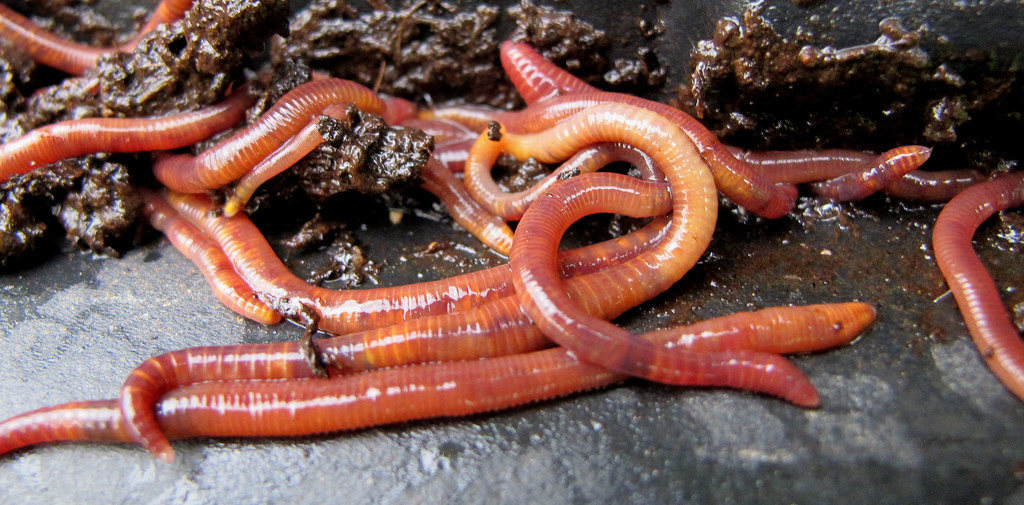Maximize Lawn Growth with Effective Products from Red Wiggler Express
Maximize Lawn Growth with Effective Products from Red Wiggler Express
Blog Article
The Extraordinary Globe of Red Wigglers: Boost Your Dirt Fertility Today
These tiny yet efficient microorganisms transform natural waste into useful worm castings, considerably boosting dirt wellness and promoting sustainable methods. As we discover the advantages of vermicomposting and the functional steps to create an effective worm container, the prospective influence of these worms on your gardening success becomes significantly noticeable.
Recognizing Red Wigglers
Red wigglers, scientifically called Eisenia fetida, are a varieties of earthworm that play a vital function in enhancing dirt fertility. These worms thrive in organic-rich settings, such as compost heap and decomposing plant product, where they take in natural waste and excrete nutrient-dense spreadings. Their special makeup, featuring a segmented body and a clitellum, enables them to recreate quickly and efficiently procedure big quantities of organic matter.

The ecological significance of red wigglers expands beyond mere waste processing; they add to the soil food internet, fostering a diverse community of microorganisms that additionally improve dirt health. Recognizing the biology and actions of red wigglers is necessary for using their full potential in lasting farming and gardening techniques.
Advantages of Vermicomposting
(Lake Rhodhiss Bait)Utilizing the power of red wigglers via vermicomposting deals numerous benefits that considerably boost dirt health and wellness and fertility. One of the primary benefits is the manufacturing of nutrient-rich worm castings, which are an exceptional all-natural fertilizer. Red Wiggler Express. These castings have essential nutrients like nitrogen, phosphorus, and potassium, advertising durable plant development and improving plant returns
Additionally, vermicomposting boosts soil structure and oygenation. The visibility of worm spreadings enhances soil structure, enabling far better water retention and drain. This balanced dampness degree is essential for root development and the general health and wellness of plants. Red wigglers aid break down natural matter, increasing disintegration and reusing nutrients back right into the soil.
Vermicomposting also cultivates microbial activity, which is vital for a healthy soil ecosystem. Beneficial microbes prosper in the visibility of worm spreadings, helping in the break down of organic materials and boosting vitamins and mineral schedule to plants.
Lastly, vermicomposting functions as an effective waste management solution, minimizing landfill waste by reusing cooking area scraps and other natural products. This not just contributes to ecological sustainability yet additionally advertises a circular economic situation within horticulture and farming.
Exactly How to Establish a Worm Container
Establishing a worm bin is a simple process that can substantially boost your composting efforts. Begin by picking an appropriate container, which can range from a readily available worm container to a simple plastic or wood box (Red Wiggler Express). Guarantee the container has ample air flow; small openings in the cover and sides will help with air flow
Next, produce a bed linen layer to offer a comfy environment for the red wigglers. This can be made from shredded newspaper, cardboard, or coconut coir, dampened to a moist, sponge-like uniformity. Load the bin to about one-third full with this bedding product.
When the bed linens is prepared, it's time to introduce the worms. Red wigglers flourish in organic waste, so area them delicately onto the bedding. Cover the worms with a light layer of extra bed linen to aid them accommodate.
Feeding Your Red Wigglers
Providing the best food for your red wigglers is essential for their wellness and the effectiveness of your composting system. Red wigglers prosper on a different diet plan, mostly consisting of natural materials such as fruit and vegetable scraps, coffee grounds, and shredded paper. These materials not just give essential nutrients however also add to the microbial task in the worm bin, which is essential for the worms' food digestion.
It is very important to avoid certain foods, such as milk products, oils, and meats, as these can draw in bugs and create undesirable odors. In addition, citrus peels and overly zesty foods must be restricted as a result of their possible to damage the worms. A balanced method to feeding involves keeping track of the amount of food introduced to the bin, making certain that it is consumed within a reasonable period to stop excess waste accumulation.
To promote optimal click to find out more food digestion, it is helpful to slice or shred larger food products prior to including them to the bin. This method increases the area for microbial action, assisting in quicker decomposition and boosting the overall efficiency of your composting system. Regularly observing the worms' feeding practices will certainly help you readjust their diet plan as needed.
Making Use Of Worm Spreadings in Your Garden

(Red Wiggler Express)Including worm spreadings into your garden can be completed by mixing them right into the dirt or utilizing them as a leading dressing. The slow-release nature of these spreadings makes sure that nutrients are available to plants over an extensive duration, minimizing the need for synthetic plant foods. Additionally, worm spreadings contain helpful bacteria that promote healthy and balanced dirt ecological communities, enhancing the overall durability of your yard.
To optimize the benefits, purpose to apply around one part worm spreadings to 3 parts soil in your growing beds. Normal applications can bring about boosted plant yields and healthier plants, making worm spreadings an invaluable source for both novice and knowledgeable garden enthusiasts alike. By using this all-natural amendment, you can grow a thriving garden while adding to sustainable gardening practices.
Final Thought
In verdict, red wigglers exhibit the essential duty of vermicomposting in improving soil fertility. Their ability to convert organic waste right into nutrient-rich spreadings significantly enriches dirt structure and sustains microbial variety.
Report this page